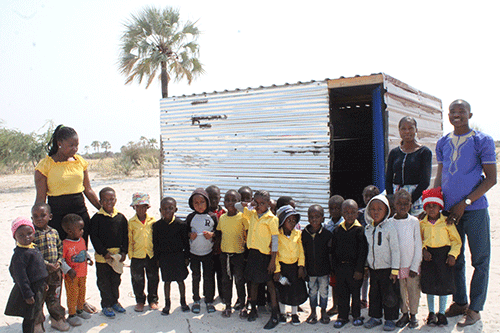Cecilia Xavier
OPUWO – Minister of Gender Equality, Poverty Eradication and Social Welfare Doreen Sioka has urged communities to allow children to be children, while calling on Namibian children to say no to harmful practices affecting them.
She made the call during the celebration of the Namibian Child Day at Opuwo last Wednesday under the theme ‘Eliminating Harmful Practices Affecting Children: Progress on Policy and Practice Since 2013’.
The minister said a national formative study on child marriages conducted in the Zambezi, Kavango West, Ohangwena, Omusati and Kunene regions by the ministry in 2018 revealed that Kunene has a 24% rate of child marriages, while the Kavango regions have 40%.
“The Namibian government recognise you as a right holder and, therefore, you have the power to hold the government accountable for the realisation of your rights. In addition, the ministry advocates for you to be involved in all decisions affecting you. We, therefore, intend to actively engage you to ensure that your voices are heard,” said Sioka.
She noted that the ministry is animating and translating the Child Care and Protection Act’s provisions into local languages to ensure that children are able to understand the law.
Sioka said harmful practices, which range from socio-cultural practices, beliefs and customs, continue to violate the rights of children across the continent and hinders them from enjoying their fundamental rights.
“These practices are traumatic to children, and negatively affect their social development. These practices further have a negative impact on children’s dignity, psychological and moral integrity and development, participation, health, education, economic and social status,” she highlighted.
Speaking at the same occasion, Kunene education director Angeline Jantze said learners who are harmed at school refuse to come to school for fear of being bullied, which can lead to drop-outs. “We have to make the school community aware of what is harmful. Teach them to differentiate between right and wrong. Some learners do not receive attention from parents emotionally and socially, including help with homework. Some struggle with their school work and become disruptive in classes,” she observed.
The director further urged stakeholders to take education very seriously, especially in the Kunene region, and to bring children to school.
“Educate our parents about the importance of education,” Jantze stated.
-Cecilia Xavier works for the Ministry of Information and Communication Technology in Opuwo.



